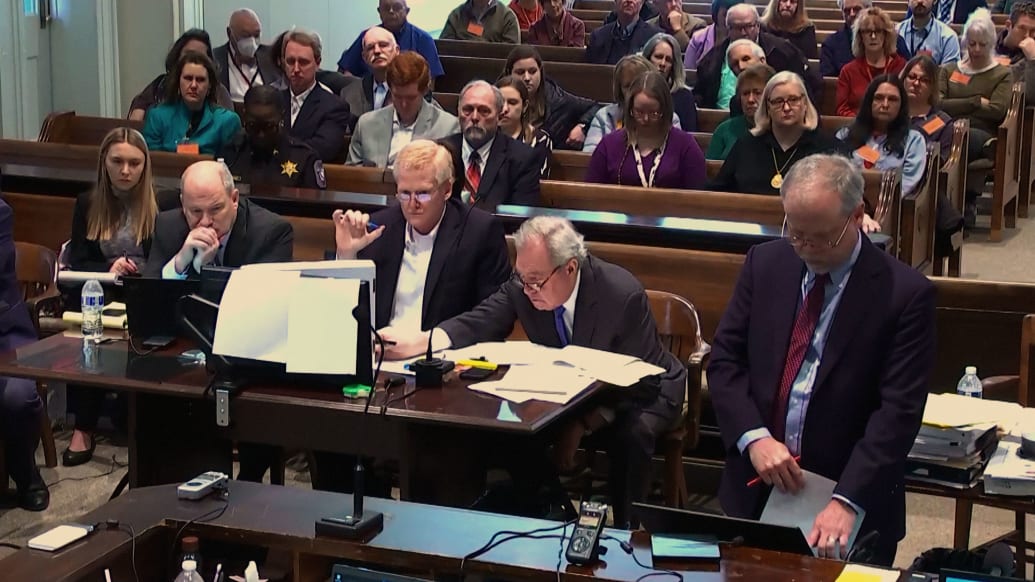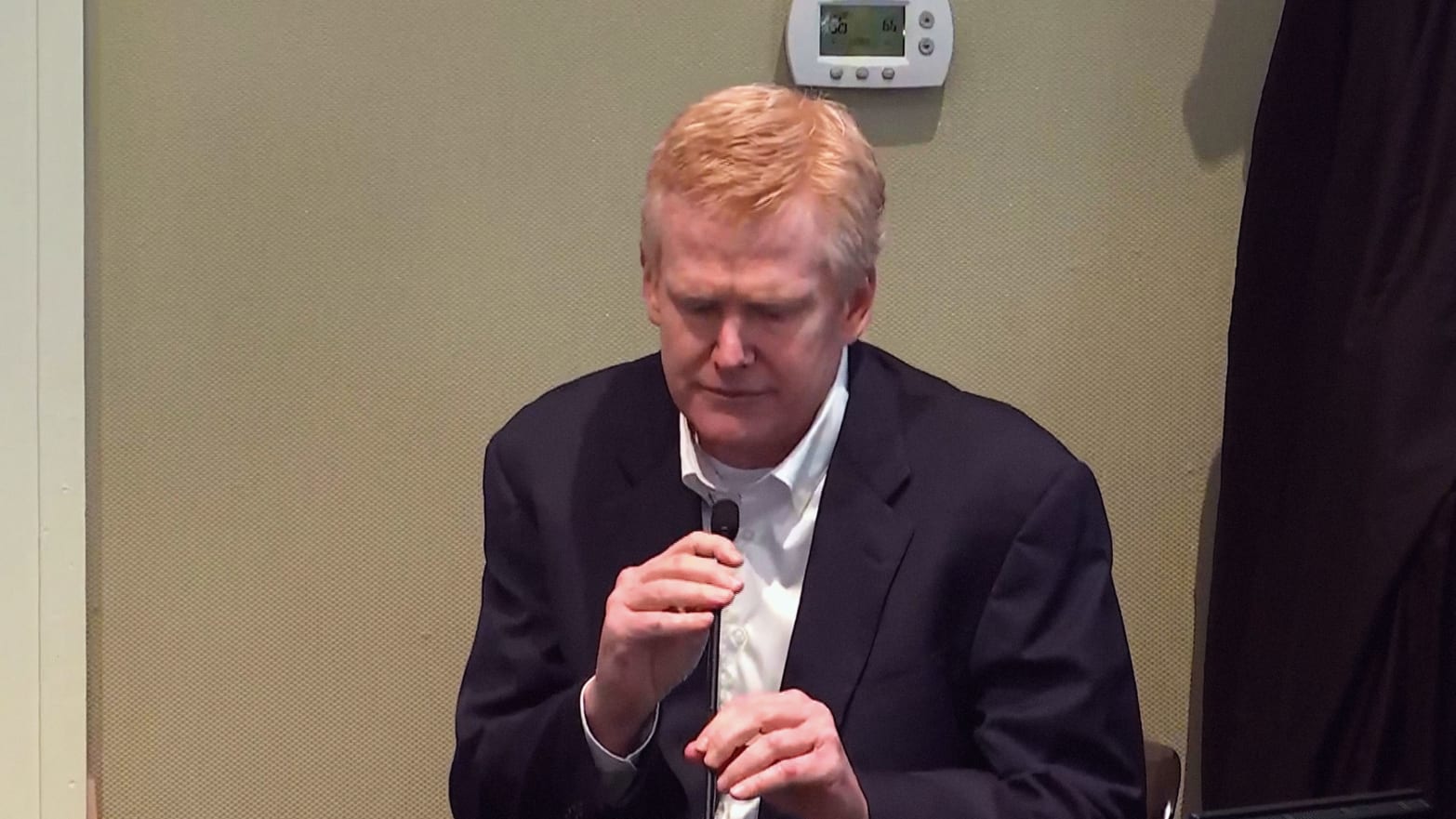When Murdaugh Murders: A Southern Scandal premiered this past February, Alex Murdaugh was in the midst of standing trial for the homicides of his wife Maggie and younger son Paul. Thus, by definition, its story was incomplete. Directors Michael Gasparro and Julia Willoughby’s three-part follow-up (Sept. 20 on Netflix) aims to rectify that situation, detailing the investigation into the double murders and Alex’s criminal trial through law enforcement videos, courtroom footage, and interviews with individuals directly involved in the case. Trying to stay ahead of the news, however, is a difficult docuseries task, and for all the interesting material offered here, recent headlines suggest there’s still more to tell—making this non-fiction affair akin to a sequel rather than a finale.
Murdaugh Murders: A Southern Scandal’s first season thoroughly examined Paul Murdaugh’s alleged culpability in a boating accident that killed friend Mallory Beach, as well as the suspicious demises of teenager Stephen Smith and housekeeper Gloria Satterfield, all of which cast the clan in an intensely unflattering light. Exacerbating that impression were revelations about Alex’s financial malfeasance, his rampant drug addiction, and his habit—learned from his father Randolph—of protecting the family’s legacy by throwing others under the bus. It was a damning portrait, and it peaked with Alex’s 911 call to police on June 7, 2021, when he stated he had discovered the bodies of his wife Maggie and son Paul at the kennels where Paul was caring for his buddy Rogan Gibson’s dog Cash.
Body cam footage from responding officers bring this traumatic evening to vivid life in Murdaugh Murders: A Southern Scandal, with a distraught Alex surmising on the spot that perhaps this slaying was related to Paul’s prior boat-accident scandal—the idea being that unnamed parties who blamed Paul for Mallory’s death had come to exact revenge. Despite those implications, focus quickly shifted to Alex himself, and in particular, to his alibi for the evening in question. According to the lawyer, whose family had wielded tremendous power in their South Carolina enclave for a century, he had been visiting his Alzheimer’s-afflicted mom at the time of the murder. He had subsequently returned home and taken a nap on his couch while watching TV. When he finally visited the kennels, he found his slaughtered brood and contacted authorities.
Maggie and Paul were killed with two different firearms, neither of which were recovered, and Alex owned both types of guns (a shotgun and a rifle). A brief cell phone video from earlier that day indicated that, between the evening and when police arrived, Alex had changed his clothes—something that, when pressed, he could not remember doing. More damning was a later video recovered from Paul’s phone from 8:44 p.m. (mere moments before his death) in which, as he plays with Cash, both his mother and father can be heard speaking nearby. This was the proverbial smoking gun that put Alex at the scene of the crime and indicated that he’d deliberately lied about his whereabouts. It may have all been circumstantial, but it was enough to earn him a swift guilty verdict and life sentence.

Netflix
Murdaugh Murders: A Southern Scandal recounts this with reasonable thoroughness and immediacy, aided by interviews with housekeeper Blanca Turrubiate-Simpson (whose texts with Maggie are additionally presented), juror Gwen Generette, attorney general Alan Wilson, prosecutor Creighton Waters, and Wall Street Journal reporter Valerie Bauerlein, who tagged along with jurors when they visited the Murdaugh’s Moselle Road estate. Also intriguing, at least initially, is a new interview with Curtis Edward Smith, Alex’s cousin and longtime friend, who was rumored to be the family’s veritable fixer and Alex’s drug dealer and criminal co-conspirator. Curtis claims that Alex asked him to murder him and, when he refused, tried to off himself and blame it on Curtis—a mess that’s complicated by the fact that Curtis is currently facing charges for laundering money (via 437 checks totaling $2.4 million) for the attorney.
Smith denies those allegations but never provides a satisfactory explanation for why he spent years depositing checks from Alex into one account and then writing checks to Alex for the exact same amounts. Murdaugh Murders: A Southern Scandal depicts him as a dubious component of this saga, if hazily; there’s no way to get a real beat on his actual relationship with Alex. Similarly, there’s regular commentary from Colleton County Clerk of Court Rebecca “Becky” Hill, who relays her experiences right up to the point when she read the verdict. What’s not mentioned, because the news only broke a couple of weeks ago, is that Hill has been accused of instructing jurors to not trust Alex’s testimony, having private conversations with them, and encouraging them to arrive at a speedy decision—all improper actions that Alex’s lawyers think should result in a new trial.

Netflix
Considering its production timeline, it’s inevitable that none of this makes it into the second installment of Murdaugh Murders: A Southern Scandal. Yet it highlights that Gasparro and Willoughby’s docuseries cares more about immediately getting episodes to viewers than about patiently waiting until all the facts are in and the entire narrative can be told. Cory Fleming just got two decades behind bars for helping his friend and associate Alex steal millions from clients, and in November, Alex himself will stand trial for some of the 101 financial-crime charges he’s facing. There’s also an ongoing probe into Smith’s death and the chaos caused by Murdaugh’s admission that Satterfield didn’t die as he originally claimed. This tale isn’t quite over, and Netflix’s latest therefore comes off as an unfinished inquiry.
That’s most telling with regards to Murdaugh’s motive, which receives short shrift in this sophomore go-round. The “why” may not have been necessary for jurors to hold Alex responsible for his wife and son’s murders, but from a general storytelling perspective, the question remains relevant enough to deserve more than the fleeting treatment it receives in the final episode. Perhaps, however, that answer—and clarification on additional loose threads—is simply being held for a third season.

